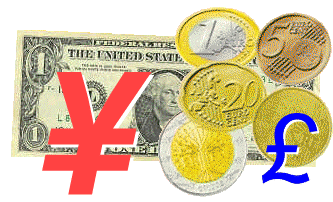Economics


Economic effect of a devaluation of the currency
http://www.economicshelp.org/
A devaluation occurs in a fixed exchange rate. A depreciation occurs in a floating exchange rate system. Both mean a fall in the value of the currency. e.g. a devaluation in the Pound means it is worth less Euros.
Effects of a devaluation
1. Exports cheaper. A devaluation of the exchange rate will make exports more competitive and appear cheaper to foreigners. This will increase demand for exports
2. Imports more expensive. A devaluation means imports will become more expensive. This will reduce demand for imports.
3. Increased AD. A devaluation could cause higher economic growth. Part of AD is (X-M) therefore higher exports and lower imports should increase AD (assuming demand is relatively elastic). Higher AD is likely to cause higher Real GDP and inflation.
4. Inflation is likely to occur because:
Imports are more expensive causing cost push inflation.
AD is increasing causing demand pull inflation
With exports becoming cheaper manufacturers may have less incentive to cut costs and become more efficient. Therefore over time, costs may increase.
5. Improvement in the current account. With exports more competitive and imports more
expensive, we should see higher exports and lower imports, which will reduce the current account deficit.
Evaluation of a Devaluation
The effect of a devaluation depends on:
1. Elasticity of demand for exports and imports. If demand is price inelastic, the a fall in the price of exports will lead to only a small rise in quantity. Therefore, the value of exports may actually fall. An improvement in the current account on the Balance of Payments depends upon the Marshall Lerner condition and the elasticity of demand for exports and imports
If PEDx + PEDm > 1 then a devaluation will improve the current account
The impact of a devaluation may take time to have effect. In the short term, demand may be inelastic, but over time demand may become more price elastic and have a bigger effect.
2. State of the global economy. If the global economy is in recession, then a devaluation may be insufficient to boost export demand. If growth is strong, then there will be a greater increase in demand. However, in a boom, a devaluation is likely to exacerbate inflation.
3.Inflation The effect on inflation will depend on other factors such as:
Spare capacity in the economy. E.g. in a recession, a devaluation is unlikely to cause inflation.
Do firms pass increased import costs onto consumers? Firms may reduce their profit margins, at least in the short run.
Import prices are not the only determinant of inflation. Other factors affecting inflation such as wage increases may be important.
4. It depends why the currency is being devalued. If it is due to a loss of competitiveness, then a devaluation can help to restore competitiveness and economic growth. If the devaluation is aiming to meet a certain exchange rate target, it may be inappropriate for the economy.

No comments:
Post a Comment